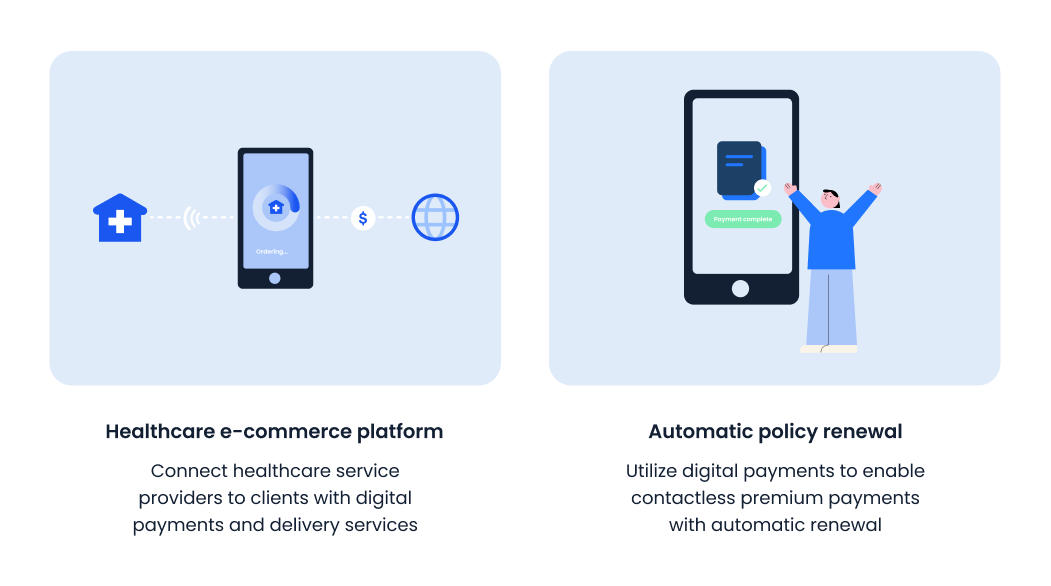Everything personalized: upcoming customer experience trends of 2022

We've come halfway through 2022. Now is the perfect time to step on that accelerator and boost your business performance before the year comes to an end.
Attracting and maintaining customers are the main objective across the board. But what exactly are your customers looking for? How can brand owners adapt to stay top of mind with their customers?
Personalization is key
With so many product choices and information, customers nowadays make purchasing decisions based on the shopping experience. According to a poll by Salesforce, 91% of buyers are more inclined to purchase from the same brand if they receive a pleasant shopping experience.
In the digital age, brands competitively utilize their customer data. Product offerings, marketing communication, and shopping journeys are customized to a personal level. Thus, customers are accustomed to and are more likely to buy from brands that offer personalized experiences.
To create the most suitable shopping experience, brands should understand their customers' preferences and behaviors. Then, integrate customer segmentation into curating shopping journeys that reflect each group.

Curated experience
Each individual prefers a different shopping style and channel. These preferences are a crucial foundation for designing the purchasing journey.
The shopping journey starts from the moment your brand first catches your customer's eyes and ends after the order is complete. To compose the whole process effectively, brands should consider every touchpoint — from engagement to purchasing channels, peak purchasing times, customers' payment preferences, etc.
I. Design the checkout flow early on
By exercising the right checkout design, businesses can secure up to 35.26% higher conversion. 2 There is no wonder that the checkout process plays a significant role in determining the success of a purchase. But it is also a handful to change once the business is established.
Businesses should, therefore, design the proper payment flow early on when developing a business model. Learn which payment methods your target customers use most frequently, where and how they prefer to shop, and how long they are most willing to spend making the entire purchase.
Tips
- Think backward. Before choosing where to sell, design the payment experience your customers will love. This way, you have options that guarantee higher customer satisfaction and allow more space for innovation. It is an easier game of puzzle.
- It all comes down to who your markets are. Do your customers shop during busy hours and pay with cards? It might be best to enable a save card feature on your checkout form. Or, if they prefer to chat and shop, payment links with internet banking and e-wallet options might help hasten their checkout.
II. Take a look around
Most customers seek equivalent experiences across different products and services. Look around to discover what your horizontal and vertical industry neighbors are doing.
Start from related industries as shifts in trends across the fence are likely to impact your business first. See the influence of online food markets, for instance. The growth of food delivery platforms paved the way for online ride services and contributed to the boom of mobile banking solutions.
Tips:
- Innovate from available solutions. There are always technologies used in other industries that you can utilize to invent a unique checkout flow even your customers might not know they need.

Make it real-er with immersive experiences.
Customers expect brands to engage with them individually. The global experience market will continue growing post-pandemic, nearly tripling by 2029 3. Meanwhile, artificial intelligence and virtual reality technologies will become more accessible for more diverse industries and smaller companies.
Brands that can utilize the technologies and create the most authentic immersive product interaction would hold a competitive advantage in building a strong impression and encouraging purchases.
Even without physical spaces, there are many approaches online brands can take. Some fashion and cosmetic brands have adopted virtual try-on with a personal AI assistant. Some housing and automobile companies have integrated real-time one-on-one viewing via facetime meetings into their service offerings.
A trend that has been gaining attention and popularity, especially in Asia, is live commerce, which allows brands to showcase their products, engage in Q&A sessions, and even involve celebrities through live streams.

Tips:
- Integrate a payment gateway to complete the virtual shopping journey. Drive sales with spontaneous purchases as your customers can order and pay right away.
Sources
More from us
Thank you!
You are subscribed.